
Mice are known for their love of cheese, but what about peanut butter? Many people have heard that mice are attracted to the nutty spread, but is this true? This article will explore the question: do mice like peanut butter?
To answer this question, it's important first to understand mice's dietary habits. As omnivores, mice eat plant and animal matter. Their diet consists of grains, seeds, fruits, and insects. While cheese is often portrayed as a mouse's favorite food in popular culture, it's not a natural part of their diet. Many mice are lactose intolerant and cannot digest dairy products. So, where does peanut butter fit into the mix?
Despite the popular belief that mice are attracted to peanut butter, little scientific evidence supports this claim. While some mice may be enticed by the smell or taste of peanut butter, it is not a natural part of their diet and may not be their preferred food. Additionally, peanut butter is high in fat and sugar, which can harm mice in large quantities. So, while peanut butter may be a convenient bait for mouse traps, it's not necessarily the best choice for attracting wild mice.
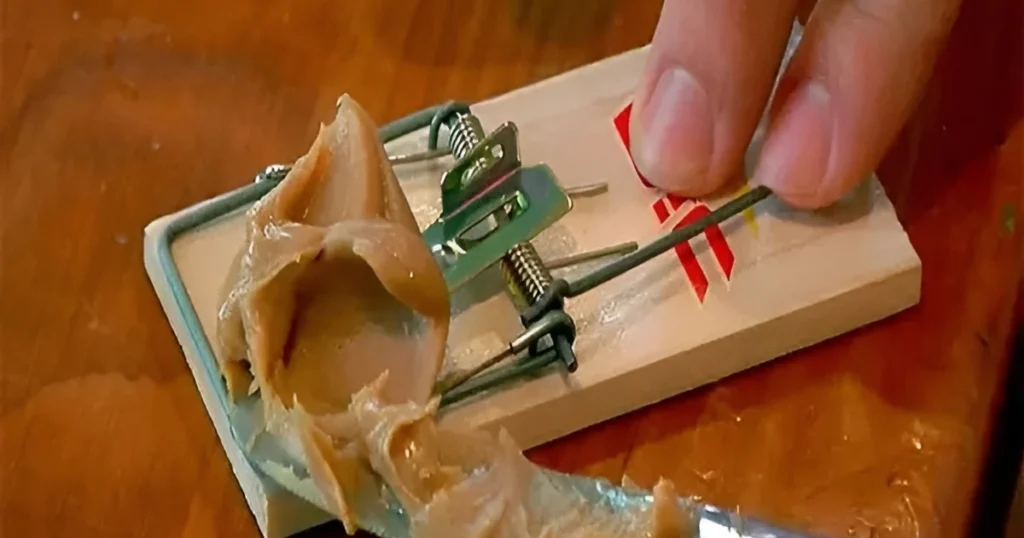
As omnivores, mice eat both plants and animals. Their regular diet contains nuts, fruits, seeds, insects, and small animals like insects and worms. They also eat grains and cereals, making them a common pest in homes and farms where these foods are stored.
Mice are opportunistic eaters and will consume almost anything they come across. In homes, they are known to eat human food such as bread, cereal, pasta, and chocolate. However, it is important to note that not all human foods are safe for mice. For example, mice cannot digest dairy products and should not be given cheese or milk.
One common misconception is that mice love peanut butter. Mice are attracted to peanut butter's smell, but it is not a natural food for them. Some mice may be allergic to peanuts and have an adverse reaction if consumed. Therefore, using peanut butter as bait for mouse traps is not recommended.
Another question that arises is whether mice can eat peanut butter. The answer is yes; mice can eat peanut butter in small quantities as a treat. However, it should not be a regular part of their diet as it is high in fat and sugar, which can lead to health problems.
In conclusion, understanding the natural diet of mice and the human foods they encounter can help control mouse infestations. While peanut butter may be a popular bait for mouse traps, knowing its limitations and potential risks is important.
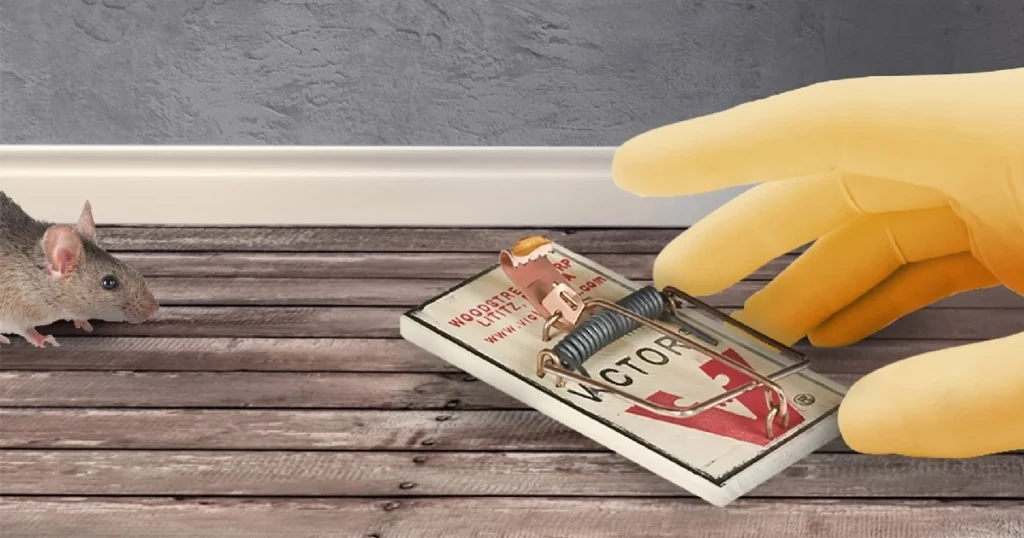
Peanut butter is a popular bait for catching mice. Mice are drawn to the smell of peanut butter, which is rich in fats and proteins. These nutrients are essential for mice's survival and growth. Peanut butter is also easy to handle and can be spread on traps or placed on bait stations.
However, not all mice are attracted to peanut butter. Some mice may prefer other foods like seeds, nuts, or fruits. The preference for food can vary depending on the species of mice and their environment. It is important to try different baits to determine what works best for a particular mouse infestation.
Mice have a keen sense of smell; they can detect odors from a distance. The range of their sense of smell depends on various factors, such as the concentration of the odor, the humidity, and the wind direction. In general, mice can smell peanut butter from a few feet away.
However, peanut butter's effectiveness as a bait depends on how it is presented to the mice. If the peanut butter is too diluted or mixed with other strong odors, it may not be as attractive to the mice. Similarly, if the peanut butter is placed in a location that is difficult for the mice to access, they may be unable to smell or reach it.
In conclusion, peanut butter can be an effective bait for catching mice, but its success depends on various factors. We must use the right peanut butter concentration, present it as attractive to the mice, and experiment with different baits if necessary.
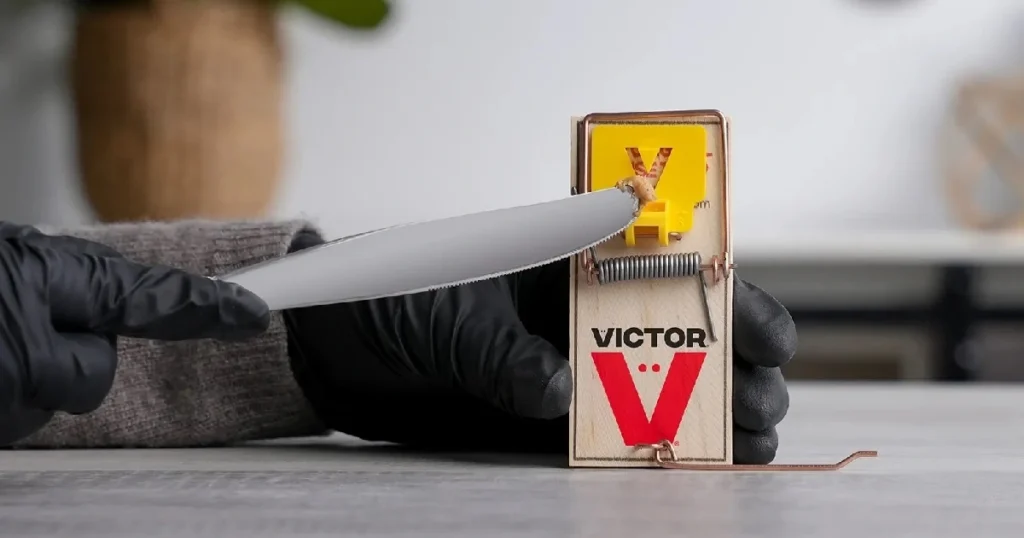
Peanut butter is a high-fat and high-protein food that can provide mice with some nutritional benefits. It contains high-profile nutrients like vitamin E, magnesium, and potassium to help maintain a mouse's overall health. We must note that peanut butter should not be a mouse's sole source of nutrition. A balanced diet that includes a variety of foods such as seeds, nuts, fruits, and vegetables is essential for a mouse's health.
While peanut butter can be a tasty treat for mice, it poses a potential health risk. One main concern with giving peanut butter to mice is its high-fat content. Overconsumption of high-fat foods can lead to obesity, which causes a range of health problems, like heart disease, diabetes, and joint pain. Therefore, in moderation, peanut butter should be given to mice as a treat rather than a staple food.
There’s also concern for potential allergic reactions. While rare, some mice may be allergic to peanuts or peanut butter. Signs include itching, swelling, and difficulty breathing. If symptoms occur after feeding a mouse peanut butter, it is important to stop feeding it immediately and seek veterinary care.
While peanut butter is a tasty and nutritious treat for mice, it should be given in moderation and as part of a balanced diet. Monitoring a mouse's weight and overall health is important to ensure it is not overconsuming high-fat foods. Additionally, if a mouse shows signs of an allergic reaction, we must seek veterinary care immediately.
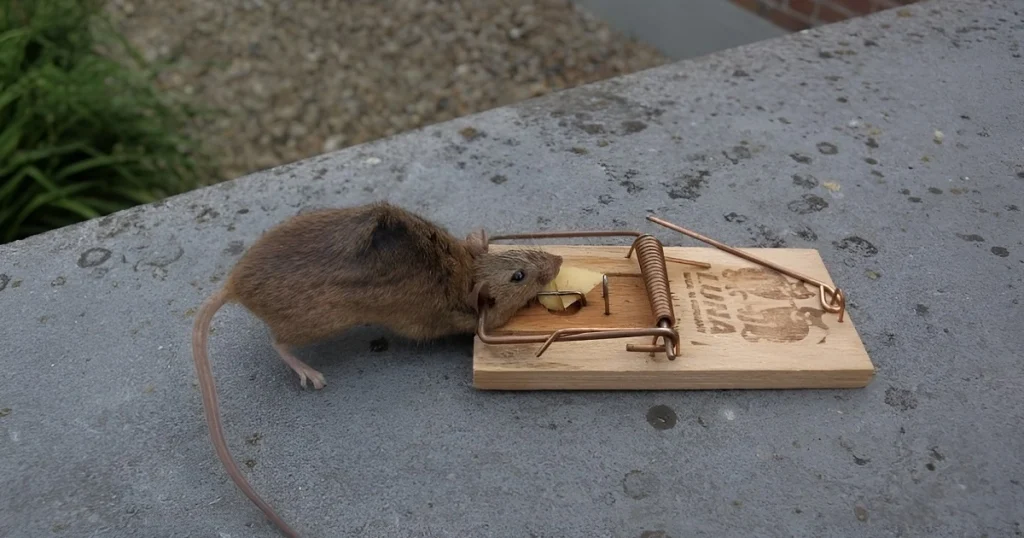
Peanut butter is a popular bait for catching mice. Its sweet and nutty aroma is highly attractive to mice, making it an effective bait for trapping them. Peanut butter is considered one of the most effective baits for catching mice.
When exposed to peanut butter, mice tend to be drawn to it immediately. They often approach the peanut butter cautiously, sniffing and inspecting it before biting. Once they have tasted the peanut butter, they will continue to eat it until it is all gone.
While peanut butter is generally considered an effective bait for catching mice, there are cases where mice may not eat it. There are several reasons for this, such as the mouse being sick or having a preference for other types of food.
It is also possible that the peanut butter used may not be fresh or have gone wrong, which can cause the mouse to avoid it. In some cases, the mouse may have been previously exposed to peanut butter and learned to avoid it.
Overall, while peanut butter is a highly effective bait for catching mice, it is important to keep in mind that there may be cases where mice may not eat it. You should always try different types of bait to see what works best in a particular situation.
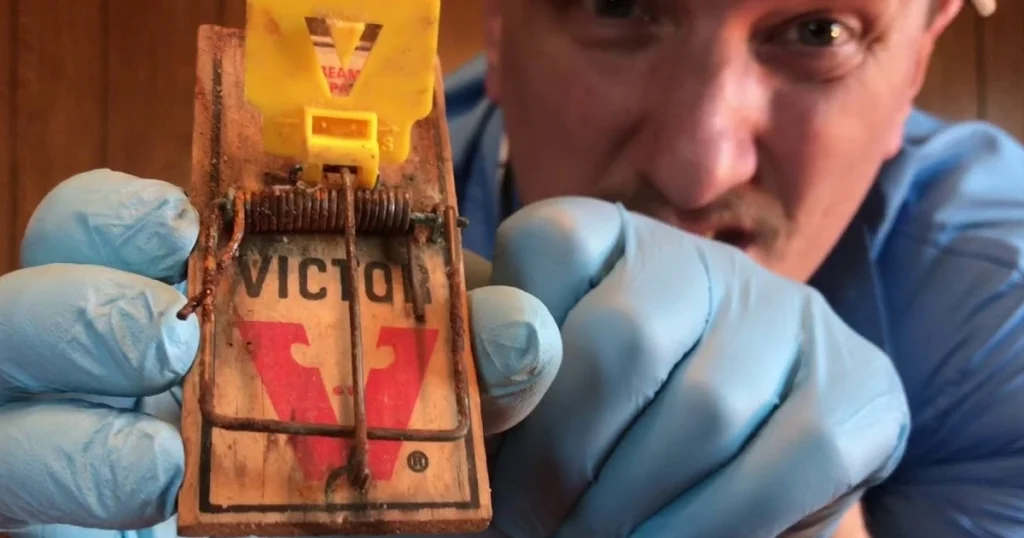
Peanut butter is a popular bait used in rodent control due to its high-fat content, which attracts mice. It can be used in various traps, including snap and live traps.
If you’re using peanut butter as bait, use a small amount. Mice can remove large chunks of bait without setting off the trap. A small dab of peanut butter on the trigger of a snap trap or near the entrance of a live trap is often sufficient.
It is important to note that while mice are attracted to peanut butter, they can also be deterred by certain smells and tastes. Therefore, it is recommended to rotate bait types to avoid habituation.
Some people may wonder if mice can have peanuts or if they will eat peanut butter. While mice can eat peanuts, it is important to note that these are not a natural part of their diet and should not be used as a primary food source. Not all mice may be attracted to peanut butter, as individual preferences vary.
When used properly, peanut butter can be an effective tool in rodent control but should not be relied upon solely. Peanut butter should be used with other preventative measures, such as sealing off entry points and maintaining cleanliness.
There are various methods for getting rid of mice. While some people may try to handle the problem independently, it's important to remember that mice can be difficult to eliminate and may require professional assistance.
One effective way to eliminate mice is to contact a professional humane wildlife removal company like Critter Stop. Critter Stop has a fantastic reputation and online customer reviews because it provides high-quality work and great customer service.
One method that Critter Stop may use to get rid of mice is bait stations. These stations are placed strategically around the property and contain bait attractive to mice, such as peanut butter. Since mice have a keen sense of smell, peanut butter's scent can entice them.
Another method Critter Stop may use is traps. A variety of traps are available, including live traps and snap traps. Peanut butter can also be used as bait for these traps, as mice are attracted to its smell.
It's important to remember that when trying to get rid of mice, it's best to use humane methods that won't harm the mice or any other animals in the area. A professional like Critter Stop can be helpful here, as they have the experience and knowledge to handle the situation safely and effectively.
In conclusion, seeking professional assistance is important if you're dealing with a mouse infestation. Critter Stop can provide a free inspection and offer effective and humane solutions. Don't let mice take over your property—call Critter Stop today at (214) 234-2616.
Yes, mice are known to be attracted to the smell and taste of peanut butter. It is a popular bait for mouse traps and is often effective in catching mice.
Mice have a strong sense of smell and can detect the scent of peanut butter from several feet away. However, the exact distance may vary depending on factors such as the amount of peanut butter used and the surrounding environment.
In general, mice can eat peanut butter without getting ill. However, it is important to note that peanut butter should not be the sole source of nutrition for mice, as they require a balanced diet to stay healthy.
Mice do not naturally eat peanuts, but they may consume them if available in their environment. Mice are omnivores and will eat various foods, including seeds, grains, fruits, and insects.
Yes, commercial peanut butter brands are explicitly marketed as mouse bait. These products are typically formulated to be highly attractive to mice and are often used in professional pest control settings.
Both peanut butter and cheese can be effective bait for trapping mice, but peanut butter is generally considered more attractive to mice. However, the effectiveness of a particular bait may depend on factors such as the individual preferences of the mice in the area.
Several methods can lure mice out of hiding, including placing bait in strategic locations, traps with enticing scents, and creating a welcoming environment with food and shelter.
A peanut butter mouse trap may fail to catch mice if it is not set up correctly, if the bait is not attractive enough, or if the mice in the area are not interested in peanut butter. To increase the chances of success, it is important to use multiple traps and experiment with different baits.
In addition to peanut butter and cheese, other effective baits for mouse and rat traps include chocolate, bacon, and dried fruits. It is important to use fresh, high-quality bait and to change it regularly to maintain its effectiveness.
Other methods, such as glue traps, live traps, or ultrasonic repellents, may be used if standard traps are unsuccessful. Before using each method, it is important to consider its safety and ethical implications.
Mice are repelled by strong, unpleasant smells such as peppermint, ammonia, and mothballs. However, it is important to use caution when using these methods, as they may also harm humans and pets.
Visit our Critter Library and learn more about our furry friends